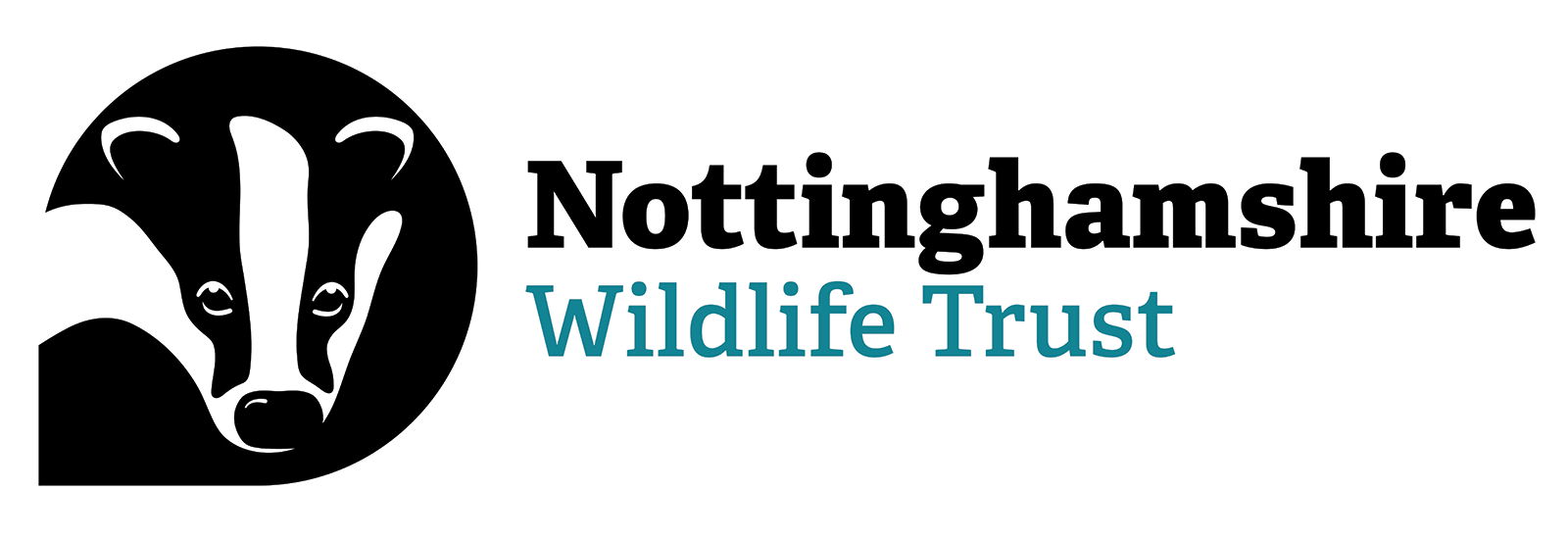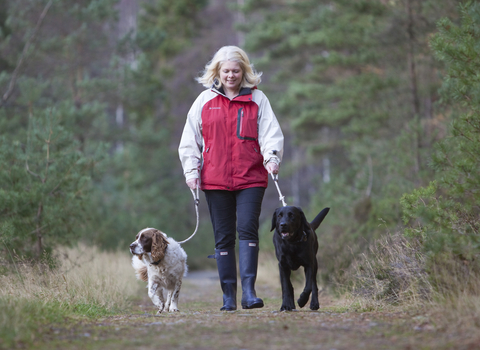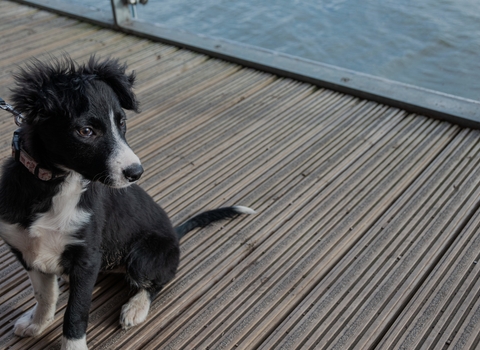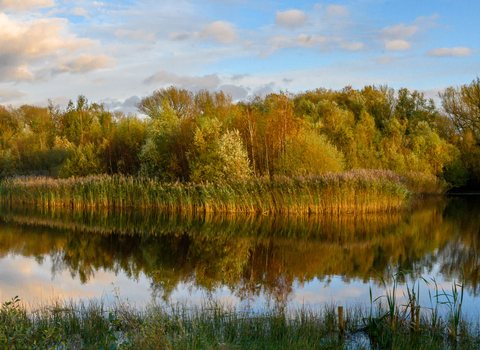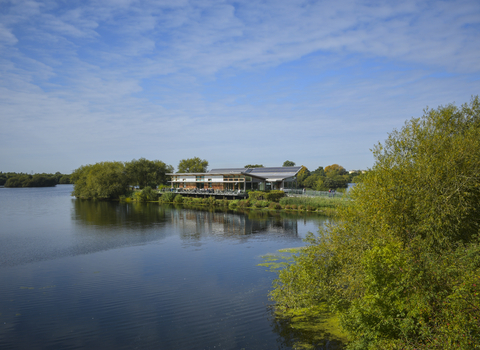Bringing your dogs to our reserves
Nottinghamshire Wildlife Trust has over 40 nature reserves and many of them, including Attenborough and Idle Valley, offer lovely walks for yourself and your dog.
What does it mean to own a dog and enjoy the countryside? It can mean lots of fresh air, great views, and fantastic wildlife watching opportunities but also responsibility.
Attenborough Nature Reserve welcomes dogs that are kept on a lead. Dogs are allowed in the visitor centre as long as they are well-behaved and kept under control.
Idle Valley is also dog-friendly, though again we ask you keep dogs on leads in all areas, especially near livestock and ground nesting birds. Dogs are also allowed in the visitor centre, though please be mindful of other guests.
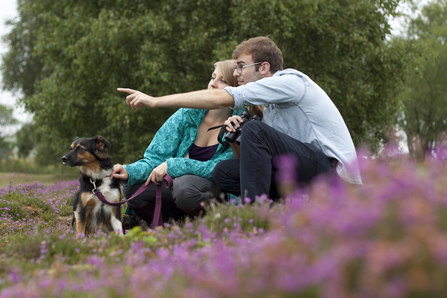
Tom Marshall
We love dogs, but wildlife isn’t as keen
Many animals, especially birds and reptiles are vulnerable to a dog running through open ground and grassland. Ground-nesting birds like curlew, wood warbler, skylarks and lapwings are very vulnerable to disturbance. Their nests are so well camouflaged they can easily be accidentally destroyed, while the added stress of a dog running across the landscape can seriously disrupt adults trying to feed their chicks. Adult birds can be frightened off and young chicks left to die.
Try and keep your dog on a lead and close to you where nesting birds are known to live.
When checking out where to walk follow our links to individual nature reserves and you will find out whether they are grazed or whether ground nesting birds are known to be found. If you are walking on Open Access land dogs must be kept on a lead no longer than 2 metres between March 1st and July 31st, to protect ground nesting birds.
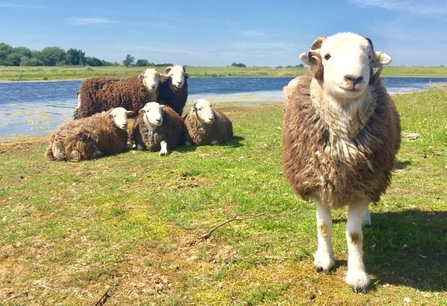
Photo © Agnes Kiemel
What to do when you see livestock with your dog
Walking in the countryside often means seeing and coming into contact with farm animals. The Nottinghamshire Wildlife Trust manages many of its nature reserves using rare breed sheep and cattle to graze our sites. They are an important part of the day to day management of our grassland and heathlands.
- When meeting a sheep with your dog, it can be stressful for both yourself and the sheep. A sheep will often run and if chased when pregnant can abort lambs. Sheep are easily brought down by a dog, which will often injure or even kill it. Even small and the friendliest of dogs can cause the sheep stress by playing. For the sake of sheep please put your dogs on a lead when in the vicinity of the flock.
- Coming across cows does not mean you have to put your dog on a lead. In fact if an inquisitive cow wants to take a look it is better for you if the dog is free to get out of the way. The cow is usually more interested in your dog than you.
What about dog poo?
- Please don’t leave it. Bag it and bin it.
- Many nature reserves volunteers will get home to find it on their clothes and shoes. Not very pleasant.
-
Some of our meadows, when mown, are used to feed our livestock. We ask that you do not let your dogs foul during this time and keep them on a lead. Notices will be put up at sites planned for mowing.
- On a more serious note dog poo spreads disease. There has been a nationwide increase in dog faeces related diseases affecting livestock. Animals can die and unborn lambs and calves can be aborted. This is of serious concern in the farming community. If dog mess was picked up and removed we would begin see this serious problem decline. For more information, you can read this article from the National Farmers Union of Scotland about dog faeces and disease.
